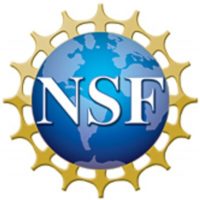2018 Board Election Results and New Appointed Board Members
CRA members have elected five new members to its board of directors: James Allan, Maria Ebling, Ayanna Howard, Ran Libeskind-Hadas, and Rachel Pottinger. Current board members Michael Franklin, Stephanie Forrest, Kathryn McKinley, Greg Morrisett, and Vivek Sarkar were re-elected to the CRA board. Their terms run from July 1, 2018 through June 30, 2021. CRA would like to thank everyone who agreed to run for a position on the board this year. Retiring from the board as of June 30, 2018 are Sarita Adve, Joel Emer, Greg Hager, H.V. Jagadish, and Farnam Jahanian.
CRA would like to thank all retiring board members for contributions during their service on the board.
 James Allan
James Allan
James Allan, Ph.D., has co-directed the Center for Intelligent Information Retrieval since 2003. He is a professor in and chair of the faculty of the College of Information and Computer Sciences at the University of Massachusetts Amherst.
Allan’s research focuses on interactive information retrieval and organization, including browsing and other human-computer interactions; automatic information organization; indexing, retrieving, and organizing large collections of found material; evaluation of information retrieval systems; and understanding the controversial nature of search results. He is currently working on ways to organize and search large collections of scanned books, explorations of how novelty can be incorporated into retrieval algorithms, techniques for representing and retrieving video segments, and approaches to allow scholars to find and search using categories not previously catalogued.
Allan has served on the editorial board of two major journals in the field, Elsevier’s Information Processing and Management and ACM Transactions in Information Systems, and was elected chair of the ACM SIGIR organization (2010-2013). He is the author of more than 130 refereed conference and journal publications in the field of IR and has chaired the Ph.D. committees of 21 graduated students in the area. He is currently the moderator for cs.IR within the arXiv repository.
Allan received his Ph.D. from Cornell University in 1995, an M.S. degree in 1993 from Cornell, and his A.B. from Grinnell College in 1983.
Maria Ebling
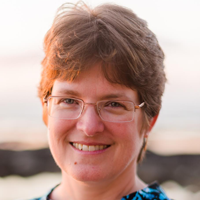 Maria Ebling is the director of academic and external partnerships at the IBM T. J. Watson Research Center. She received a B.S. from Harvey Mudd College and an M.S. and a Ph.D. in computer science from Carnegie Mellon University. Her interests are in distributed systems supporting cognitive computing, mobile and pervasive computing, privacy, and human-computer interaction. She served as the Editor-in-Chief of IEEE Pervasive Computing from 2014-2017. She is a member of the IBM Academy of Technology, a distinguished member of the ACM and a senior member of the IEEE.
Maria Ebling is the director of academic and external partnerships at the IBM T. J. Watson Research Center. She received a B.S. from Harvey Mudd College and an M.S. and a Ph.D. in computer science from Carnegie Mellon University. Her interests are in distributed systems supporting cognitive computing, mobile and pervasive computing, privacy, and human-computer interaction. She served as the Editor-in-Chief of IEEE Pervasive Computing from 2014-2017. She is a member of the IBM Academy of Technology, a distinguished member of the ACM and a senior member of the IEEE.
 Mark Hill
Mark Hill
Mark D. Hill is the Gene M. Amdahl Professor of Computer Sciences and Electrical & Computer Engineering at the University of Wisconsin–Madison, where he also co-leads the Wisconsin Multifacet project with David Wood. His research interests include parallel computer system design, memory system design, computer simulation, deterministic replay and transactional memory. He earned a Ph.D. from the University of California, Berkeley. He is an ACM Fellow and a Fellow of the IEEE.
Ayanna Howard
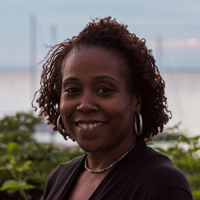 Ayanna Howard is the chair of the School of Interactive Computing and Linda J. and Mark C. Smith Professor at the Georgia Institute of Technology. Her research focuses on intelligent technologies that must adapt to and function within a human-centered world, which encompasses advancements in artificial intelligence (AI), assistive technologies, and robotics. She has authored over 200 peer-reviewed papers. To date, her unique accomplishments have been highlighted through a number of awards, including the AnitaB.org A. Richard Newton Educator ABIE Award, CRA A. Nico Habermann Award, and NSBE Janice Lumpkin Educator of the Year Award. In 2013, she also founded Zyrobotics, which has released its first suite of STEM educational products to engage children of all abilities. She also serves on the AAAS Committee on Opportunities in Science Board, DARPA Information Science and Technology (ISAT) Board, and CRA-W Board. Prior to Georgia Tech, Howard was a senior robotics researcher at NASA’s Jet Propulsion Laboratory. She has also served as the associate director of research for the Institute for Robotics and Intelligent Machines, chair of the robotics Ph.D. program, and the associate chair for faculty development in the School of Electrical and Computer Engineering at Georgia Tech.
Ayanna Howard is the chair of the School of Interactive Computing and Linda J. and Mark C. Smith Professor at the Georgia Institute of Technology. Her research focuses on intelligent technologies that must adapt to and function within a human-centered world, which encompasses advancements in artificial intelligence (AI), assistive technologies, and robotics. She has authored over 200 peer-reviewed papers. To date, her unique accomplishments have been highlighted through a number of awards, including the AnitaB.org A. Richard Newton Educator ABIE Award, CRA A. Nico Habermann Award, and NSBE Janice Lumpkin Educator of the Year Award. In 2013, she also founded Zyrobotics, which has released its first suite of STEM educational products to engage children of all abilities. She also serves on the AAAS Committee on Opportunities in Science Board, DARPA Information Science and Technology (ISAT) Board, and CRA-W Board. Prior to Georgia Tech, Howard was a senior robotics researcher at NASA’s Jet Propulsion Laboratory. She has also served as the associate director of research for the Institute for Robotics and Intelligent Machines, chair of the robotics Ph.D. program, and the associate chair for faculty development in the School of Electrical and Computer Engineering at Georgia Tech.
 Charles Isbell
Charles Isbell
Charles Isbell received his B.S. in computer science from the Georgia Institute of Technology. He continued his education at the Artificial Intelligence Laboratory at the Massachusetts Institute of Technology. After earning his Ph.D. from MIT, Isbell joined AT&T Labs/Research. In the fall of 2002, he returned to Georgia Tech to join the faculty of the College of Computing.
Isbell’s research interests are varied; however, the unifying theme of his work in recent years has been using statistical machine learning to enable autonomous agents to engage in life-long learning when in the presence of thousands of other intelligent agents, including humans. His work with agents who interact in social communities has been featured in the popular media—including the New York Times and the Washington Post—as well as in several technical collections. Since graduating from MIT, he has won two best paper awards for technical contributions in this area.
Since returning to Georgia Tech, Isbell has also pursued reform in computing education. He has been named the most outstanding instructor at the College, and has been granted the Dean’s Award for singular contribution to the College. The latter was for his work on Threads, Georgia Tech’s new structuring principle for computer science curricula. This work has received international attention and been presented in the academic and popular press. He was also a co-architect of the OMSCS, the first Master of Science in Computer Science that students can earn exclusively through the Massively Open Online Course delivery format. This work has been featured in technical collections and in over 1000 unique media articles. He has recently co-founded the Constellations Center for Equity in Computing, which seeks to broaden participation in the computing fields.
Kate Larson
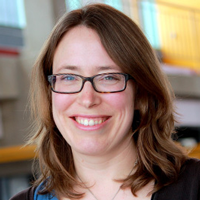 Kate Larson is a professor in the David R. Cheriton School of Computer Science at the University of Waterloo. Her research interests include artificial intelligence, with a particular focus on preference modelling and incentive issues in multiagent systems.
Kate Larson is a professor in the David R. Cheriton School of Computer Science at the University of Waterloo. Her research interests include artificial intelligence, with a particular focus on preference modelling and incentive issues in multiagent systems.
She is the vice-president of CS-Can/Info-Can. Her other past service includes being general co-chair for Autonomous Agents and Multiagent Systems (AAMAS), serving on the board of directors of the International Foundation for AAMAS, councilor for the Association for the Advancement of Artificial Intelligence (AAAI), and is an associate editor for the journals Artificial Intelligence, Journal of Artificial Intelligence Research (JAIR) and Journal of Autonomous Agents and Multiagent Systems.
She received Ph.D. from Carnegie Mellon University and her B.Sc from Memorial University of Newfoundland.
Ran Libeskind-Hadas
 Ran Libeskind-Hadas is a professor of computer science and department chair at Harvey Mudd College. His research interests are in the area of algorithms, optical networking, and computational biology. He also works in the development of innovative undergraduate curricula in computer science.
Ran Libeskind-Hadas is a professor of computer science and department chair at Harvey Mudd College. His research interests are in the area of algorithms, optical networking, and computational biology. He also works in the development of innovative undergraduate curricula in computer science.
Libeskind-Hadas received the A.B. in applied mathematics from Harvard University and the M.S. and Ph.D. in computer science from the University of Illinois at Urbana-Champaign.
Rachel Pottinger
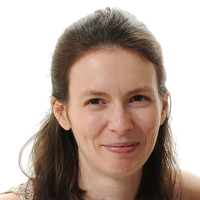 Rachel Pottinger is an associate professor in computer science at the University of British Columbia. She received her Ph.D. in computer science from the University of Washington in 2004. Her main research interest is data management, particularly semantic data integration, how to manage metadata, how to manage data that is currently not well supported by databases, and how to make data easier to understand and explore. She is the winner of the 2007 Anita Borg Institute’s Denice Denton Emerging Leader award.
Rachel Pottinger is an associate professor in computer science at the University of British Columbia. She received her Ph.D. in computer science from the University of Washington in 2004. Her main research interest is data management, particularly semantic data integration, how to manage metadata, how to manage data that is currently not well supported by databases, and how to make data easier to understand and explore. She is the winner of the 2007 Anita Borg Institute’s Denice Denton Emerging Leader award.


